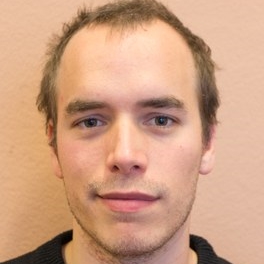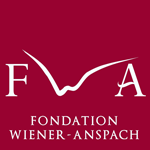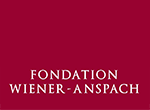Mardi 15 juin à 16h00 – Séminaire « Dialogues autour d’Alexandre Kojève »
 Le Dr Tristan Storme fera une intervention intitulée « Kojève à Plettenberg. En dialogue avec Carl Schmitt, autour de la dialectique hégélienne et de l’ordre mondial après 1945 ».
Le Dr Tristan Storme fera une intervention intitulée « Kojève à Plettenberg. En dialogue avec Carl Schmitt, autour de la dialectique hégélienne et de l’ordre mondial après 1945 ».
En 2011-2012 Tristan Storme a obtenu une bourse postdoctorale pour effectuer une année de recherches sur le thème « Réception de la pensée révolutionnaire-conservatrice allemande dans la théorie de la gauche radicale » auprès de la Prof. Kalypso Nicolaïdis (Department of Politics and International Relations, Université d’Oxford). Il est actuellement maître de conférences en sciences politiques à l’Université de Nantes et membre du Centre de Théorie politique de l’ULB.
L’inscription se fait via cette page. La présentation et le programme complet du séminaire sont disponibles ici.
Mardi 15 juin à 17h00 – Séminaire « Cosmopolitisme et justice globale »
 En clôture de ce séminaire, le Dr Martin Deleixhe abordera la question : « La politique européenne de l’asile doit-elle être cosmopolitique ou démocratique ? ».
En clôture de ce séminaire, le Dr Martin Deleixhe abordera la question : « La politique européenne de l’asile doit-elle être cosmopolitique ou démocratique ? ».
Résumé :
While designing its migration policy, the European Union must carefully weigh two conflicting considerations. On the one hand, the Union has set some normative standards for itself in its Charter of Fundamental Rights. On the other hand, since 2015, several member states signalled their inability or reluctance to host newcomers. This communication presents various solutions to reconcile the Union’s normative commitments with its migration practices. It starts by a diagnostic of the current situation of the Union’s migration policies, taking a critical look at the New Pact on Migration and Asylum. Next, it presents three possible scenarios for the future of the Union’s migration policies. In the first scenario, it suggests that the current status quo is unsustainable. In the second scenario, the Union takes a step back in the management of its external borders, hands over the operational responsibilities to its member states and limits itself to a supervisory function. In the third scenario, the European Union doubles down on the idea that what makes it stand out as a transnational polity is the fact that it is driven by a political cosmopolitanism. Consequently, it adopts a more proactive stance in the management of migrations, emphasizing the need for European solidarity and asserting its authority over the issue.
Martin Deleixhe a reçu une première bourse de la Fondation 2009/2010 pour effectuer une année de son doctorat à l’Université d’Oxford, également sous la supervision de la Prof. Kalypso Nicolaïdis. En 2013/2014 il est retourné à Oxford dans le cadre de ses recherches postdoctorales sur le thème « L’agir politique des immigrés en situation irrégulière dans les théories contemporaines de la démocratie » auprès du Dr David Leopold (Department of Politics and International Relations). Il est aujourd’hui maître de conférences à temps partiel à l’Université libre de Bruxelles et chercheur à l’Université Paris 1 Panthéon-Sorbonne. Plus d’informations sur ses recherches sont disponibles sur sa page personnelle.
Adresse de contact pour les inscriptions: benjamin.bourcier@univ-catholille.fr
Programme du séminaire.


